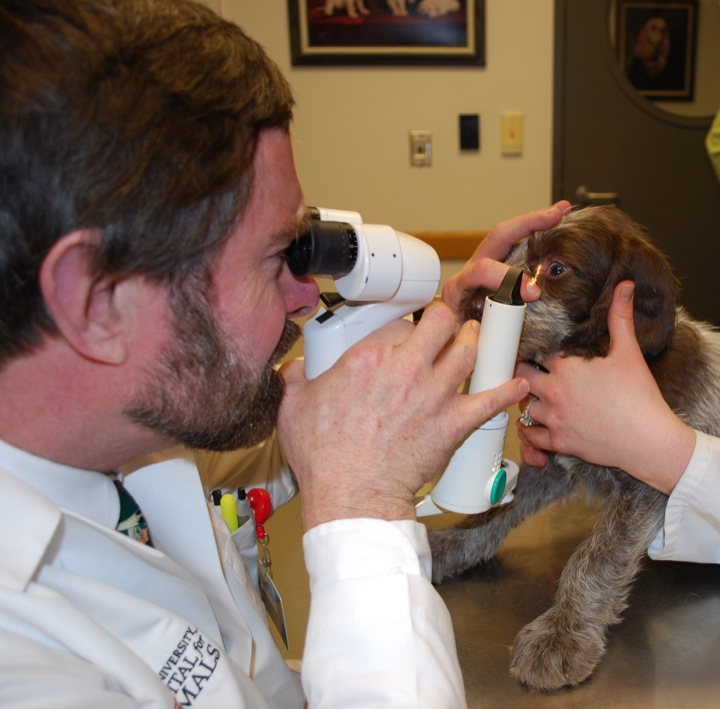Ophthalmology
Ophthalmology
 The Ophthalmology Service at the Cornell University Hospital for Animals provides scheduled and emergency care for companion animals with eye and vision problems. Our staff include the board-certified ophthalmologists and residents who collaborate with other veterinarians across the Northeast to provide comprehensive eye care.
The Ophthalmology Service at the Cornell University Hospital for Animals provides scheduled and emergency care for companion animals with eye and vision problems. Our staff include the board-certified ophthalmologists and residents who collaborate with other veterinarians across the Northeast to provide comprehensive eye care.


